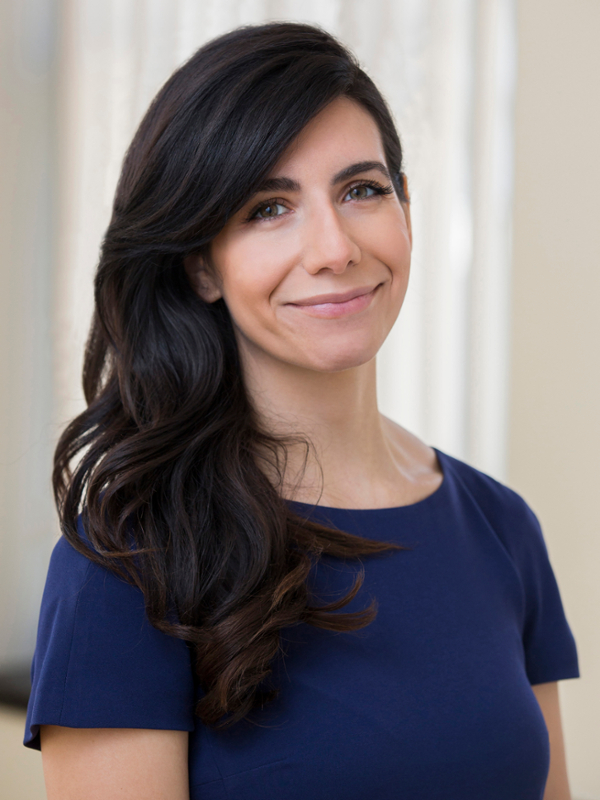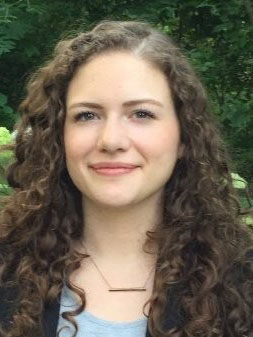
For Nicole Rodriguez, MPP’14, public policy is personal.
The Boston native vividly remembers being sick one day when she was 6 years old. Her mother, an immigrant working several jobs, was unable to stay home with her for fear of being fired. Instead, Rodriguez’s grandmother “babysat” her over the phone for the several hours the girl was home, alone and scared.
“I didn’t have the word for it, but I understood what it was like to have policy work for you, and I understood when it wasn’t there,” Rodriguez says.
Years later, as an MPP candidate at Heller, Rodriguez trained her sights on work-family issues, researching and writing reports, making presentations, and testifying at the State House on topics such as paid sick days, paid family and medical leave, and the minimum wage.
When she graduated, Rodriguez was selected as a State Policy Partnership fellow and placed as a policy analyst at the Massachusetts Budget and Policy Center (MassBudget). For legislators, advocates, and grassroots organizations, MassBudget is the go-to think tank for research and analysis that fosters equitable, inclusive economic and tax policies in the Commonwealth.
The four years Rodriguez spent at MassBudget were marked by a trio of policy victories. First, she went right to work as lead researcher on the campaign for earned sick time (that is, paid sick days). Within a month she’d produced her first report — something she could complete so quickly, she says, thanks to all the research she had done as a graduate student at Heller. She applied other skills she had acquired in the program as well, such as public speaking and, crucially, the ability to translate research into messages tailored to particular audiences, including members of the public.
“I was able to distill the data and research into a fact sheet,” she recalls, which advocates took door to door as they explained the issue to voters. Soon after that, Massachusetts residents passed a ballot measure to provide earned paid sick leave to employees.
Similarly, when lawmakers were seeking to exclude teenagers from a proposed minimum wage increase, Rodriguez engaged teens who contributed their wages to the family budget (as she had done). For their door-knocking campaigns and State House rallies, she armed them with data showing that the money Massachusetts teens earn accounts for more than 30 percent of family income. Soon after, as a result of massive community mobilizations, then-Governor Charlie Baker enacted a law that would raise the minimum wage to $15.00 an hour by 2023. The Massachusetts Paid Family and Medical Leave (PFML) law, which Rodriguez also worked on, was passed in 2018.
“This is how I see advocacy through research: strengthening people on the ground,” Rodriguez says. “Seeing all those young people at the State House using the research to advocate for themselves was one of the best moments I’ve ever had.”
Rodriguez is now president of MassBudget’s sister organization, New Jersey Policy Perspective (NJPP), “a think and do tank,” according to its website. Both entities are part of a national network of more than 40 such organizations led by the Center on Budget and Policy Priorities. At NJPP, she leads a team that advocates for racial, social, and economic justice for residents of the Garden State.
“That has been my driver: How can I make change in someone’s life through public policy so they don’t have to go through the pain my family went through?” she says.
Rooted in Community

Using knowledge to “unleash the collective power of people” is something Professor of the Practice Alexandra Piñeros Shields, PhD’07, ardently endorses, both as director of the MPP program and as chair of MassBudget’s board.
The daughter of artists who moved their family to the U.S. from Spain when she was 5 years old, Piñeros Shields grew up with a keen awareness of the economic struggle of immigrants. In the late 80s, fresh out of college, she worked on political asylum litigation for Salvadoran refugees in Washington, D.C. She thought it might lead her to pursue a law career, but she soon became disillusioned with immigration laws themselves.
Instead, she says, “I saw the power of community organizing, and it became clear to me that my work with immigrants was to be part of a collective social movement for justice,” she says. “I knew that I didn’t want to work within the laws. I wanted to change the laws.”
Piñeros Shields spent the next 13 years working with immigrants on immigration policy reform before enrolling, in 2000, in Heller’s PhD in Social Policy program. As a doctoral candidate, she delved deeply into the study of participatory action research, or PAR, an approach to knowledge production developed by Colombian sociologist Orlando Fals Borda whereby community members (particularly oppressed or marginalized groups) work as co-researchers to identify research question, collect and analyze data, and develop an action plan based on the findings.
At Heller, Piñeros Shields now teaches a popular course on PAR, explaining to her MPP students, “If you work with the people who are actually affected by an issue, your research questions are going to be more relevant.” The PAR paradigm also produces a countervailing power for those who might appear to lack it: “If people are not exercising their power, it’s because certain political, economic, social, or physical conditions are preventing them. So the question is, how do you create the conditions for people to step into their power? It’s a profound liberation for people to see themselves as the constructors of knowledge.”
Like her teaching and scholarship, Piñeros Shields’s leadership on MassBudget’s board is informed by her decades of experience in the field, including as executive director of the Essex County Community Organization (ECCO), a network of 40 faith congregations working toward dismantling mass incarceration in the criminal legal system and the immigrant detention system.
“What I am most proud of as chair of the board is that we have moved MassBudget toward becoming an anti-racist organization,” she says. Its recently stated goals include transforming the public discourse to achieve systemic change and improving policies that achieve racial and economic equity, she adds.
To achieve those goals, MassBudget advocates for state investments in education, health care, and transportation, as well as tax credits and housing assistance. Recent landmark legislation the organization helped bring about is the Fair Share Amendment (also known as the millionaire’s tax), which voters approved in 2023. In 2024, the law began generating billions of dollars for transportation and public education through a surtax on household income over $1 million.
Amplifying the Right Voices

Heller’s ethos of centering community voices is an approach that resonated deeply with Eva Bórquez, MPP’24, when she was looking at public policy programs. She had spent a few years after college doing fundraising and direct service for nonprofit organizations — efforts that came to feel “like a Band-Aid approach.” She wanted to pivot to work that had more of an impact “at a systems level, preventing some of these issues before they became issues.” Her interest in wealth gaps and economic mobility aligned with the MPP concentration in economic and racial equity, headed by Piñeros Shields.
She chose Heller “because its focus was on the people,” she says. “We were taught through all of our classes that the critical thing is centering the community you’re working with, not having an outsider-looking-in approach, making sure the voices being impacted are the ones that we’re elevating.”
When Bórquez learned about a new summer internship opportunity at MassBudget (which Piñeros Shields had established, and in which several MPP students have since participated), she applied. During her interview, she was asked what single policy she was most excited about. Her answer? Baby Bonds — government-funded savings accounts intended to help children build economic security and shrink the racial wealth gap. She got the position, and spent her entire internship researching and drafting an accessible, visually appealing explainer on why Massachusetts should implement such a program.
Today, as a research fellow at the Michigan Hispanic Collective (MiHC), which provides the state’s Latino students with college and early-career support, Bórquez regularly practices what she learned at Heller, notably in Piñeros Shields’s PAR class. She is currently conducting focus groups of high school students and their parents and teachers to better understand the barriers to college they’re facing. This qualitative research, combined with her quantitative analysis of national data, will help MiHC design and advocate for effective economic programs and policies. “We’re tailoring these programs directly to what the families need, not what we think they need,” she says.
At MiHC, Bórquez works with MPPs from a number of top schools and has introduced them to the principles of PAR. “I’ve shared the material from Alexandra’s class, and it’s resonated with everyone,” she says. “They say it fits more with our work than traditional research methods.”
State Budget as Power Tool

Like Rodriguez and Piñeros Shields, Adam Jones ’15, MPP’22, found his policy focus through his lived experience.
The four years he spent working in a Boston-area group-home setting with adults with mental illness had given him an acute awareness of the importance of housing stability, and an interest in pursuing an MPP to work on housing-related policy. But in addition to being a full-time student at Heller, he was also married to a preschool teacher and providing part-time care to his two-year-old son during the COVID-19 pandemic. That experience reoriented his policy goals: He now works at MassBudget as a senior analyst improving statewide policies related to early education and care. (Fun fact: It was Jones who interviewed Bórquez; she credits him with championing her work on the baby bonds explainer “every step of the way.”)
Jones spends much of his time speaking with both grassroots and grasstops partners to understand “how we can be helpful, what information we can contribute to support campaigns and coalitions.” Recently, in partnership with the Boston Foundation, which aims to reduce disparities in the region, Jones and his team conducted and published a study on family child-care providers (also called home-based care providers).
“This workforce is more likely to operate in lower-opportunity communities, as defined by the state,” Jones says. “We wanted to know how we could super-serve this marginalized group while also benefiting all providers and all children in the system.”
A qualitative element of the study, whose target audience was legislators and the Massachusetts Department of Early Education and Care in the Office of Education, entailed holding focus groups with home-based providers across the state. In this effort Jones and his team were assisted by the union representing providers who accept children receiving subsidies for child care, because most of those involved are Spanish speaking. Union employees facilitated the groups, asking participants about their aspirations — and barriers — to becoming upwardly mobile.
While he doesn’t call it a “PAR project” per se, he says, he took care to “check in with providers to gauge the accuracy of our work. How can we make people feel like we’re not extracting from them without giving them something in return? How can we make them feel like they’re being well represented? That’s something that matters for me.”
In August 2024, Jones, who regularly testifies at the State House on issues related to early education, submitted written remarks based on that research to an Inter-Agency Task Force looking to address child care issues at the state level. In them, he urged task force members to prioritize efforts that would increase pay to home-based care providers, such as setting reimbursement rates based on the true cost of providing care — moves that would improve providers’ lives while contributing to the state’s economy. Jones traces his awareness of the importance of economic mobility to the class Assets and Social Policy, taught by Jessica Santos, PhD’15, which he took in his first semester.
Piñeros Shields, too, influenced his thinking, in terms of differentiating between policies that entail quick fixes and those that are truly equitable — that is, systemically oriented. “That is a framework I think about a lot in the work I do, and one I hold myself to,” Jones says.
At MassBudget, Jones and colleagues make it their business to maintain an in-depth understanding of the state budget as it evolves. “The budget is the largest piece of legislation that passes every single year — it can’t not pass. We think that that’s a very strategic target for moving policy,” he says, specifying that “the North Star of our work is to center equity. We want to undo the harm that’s been done to marginalized groups, whether that be women, people of color, or people who are non-native to the U.S.”
Jones adds: “If you center those people, it doesn’t mean that others don’t get what they need. We believe there's enough to go around.”
